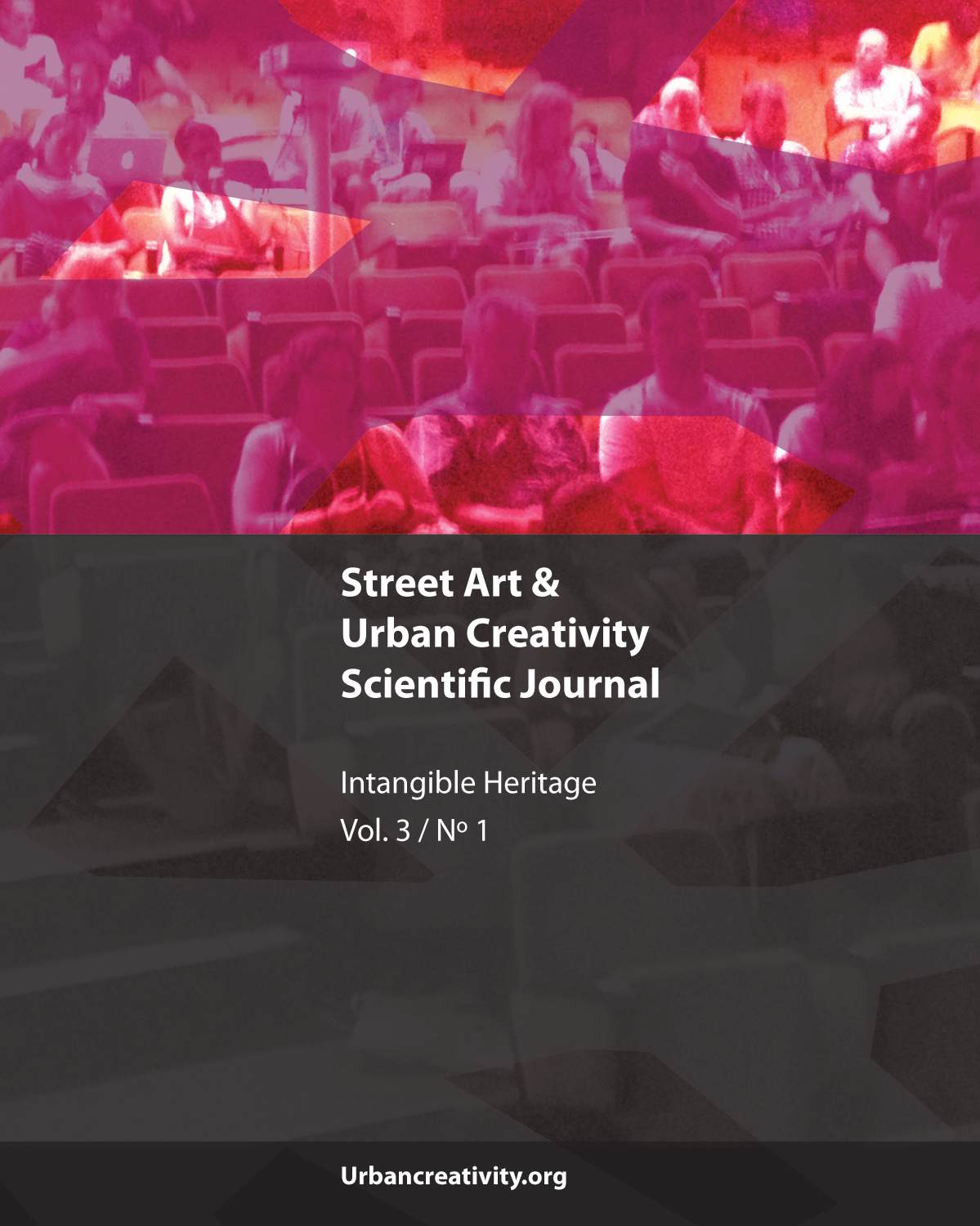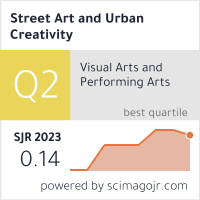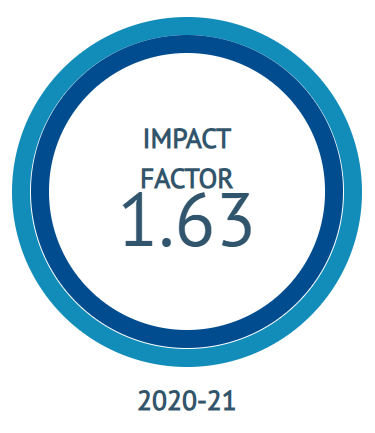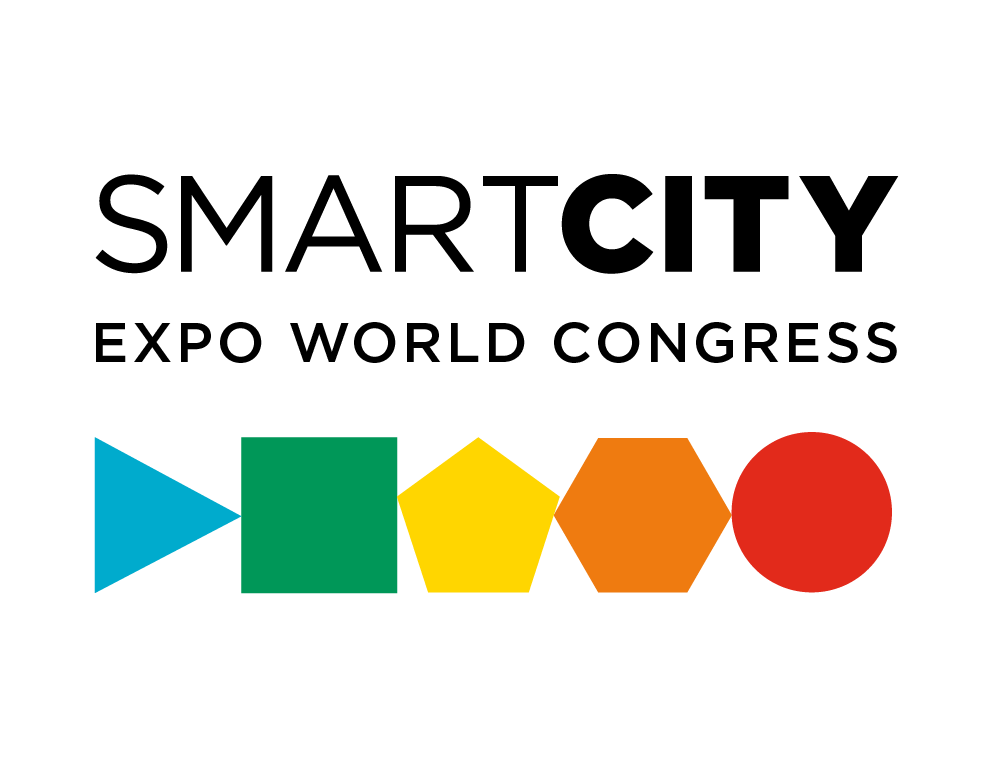Lisbon Street Art and Urban Creativity International Conference 2017
DOI:
https://doi.org/10.25765/sauc.v3i1.72Abstract
In the context of Lisbon Street Art & Urban Creativity International Conference 2017, I would like to congratulate the organization of the 4th Edition of this event; the Faculty of Fine Arts of the University of Lisbon for hosting once again this initiative; the other partners of this meeting. It is with great pleasure that the Ministry of Culture, through the Directorate-General for the Arts, supports this Conference.
Considering the intense programme announced for these three days of work, it is easy to confirm the relevance that this subject, connected with graffiti and street art, has come to gain as an object of study, for a very diverse academic environment, including several scientific areas, which I would classify as a multinational one, taking into account the origins of the participating researchers.
Downloads
Global Statistics ℹ️
|
165
Views
|
50
Downloads
|
|
215
Total
|
|
Downloads
Published
How to Cite
Issue
Section
License
Those authors who publish in this journal accept the following terms:
-
Authors retain copyright.
-
Authors transfer to the journal the right of first publication. The journal also owns the publishing rights.
-
All published contents are governed by an Attribution-NoDerivatives 4.0 International License.
Access the informative version and legal text of the license. By virtue of this, third parties are allowed to use what is published as long as they mention the authorship of the work and the first publication in this journal. If you transform the material, you may not distribute the modified work. -
Authors may make other independent and additional contractual arrangements for non-exclusive distribution of the version of the article published in this journal (e.g., inclusion in an institutional repository or publication in a book) as long as they clearly indicate that the work was first published in this journal.
- Authors are allowed and recommended to publish their work on the Internet (for example on institutional and personal websites), following the publication of, and referencing the journal, as this could lead to constructive exchanges and a more extensive and quick circulation of published works (see The Effect of Open Access).













